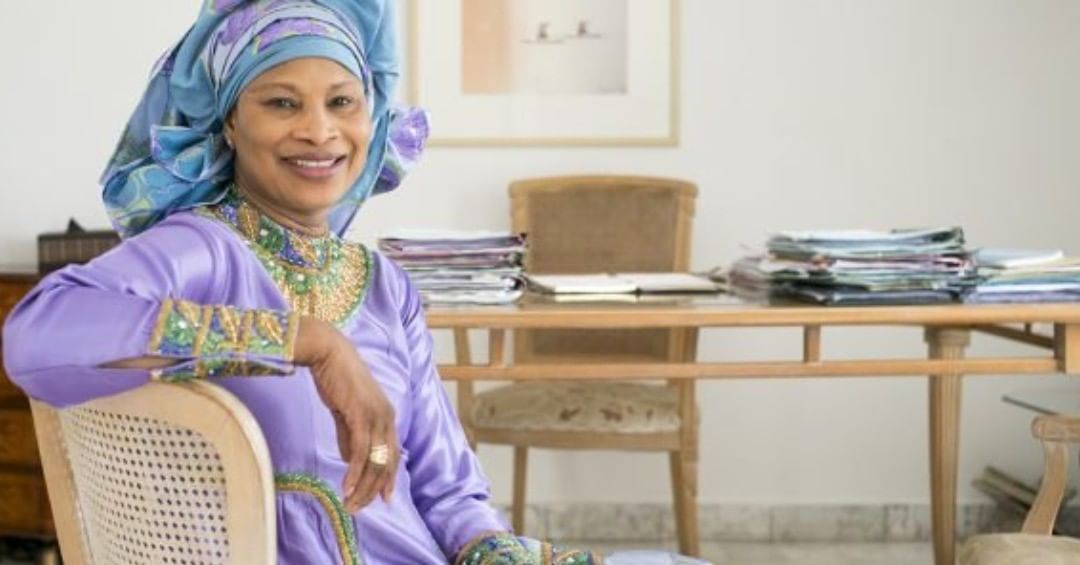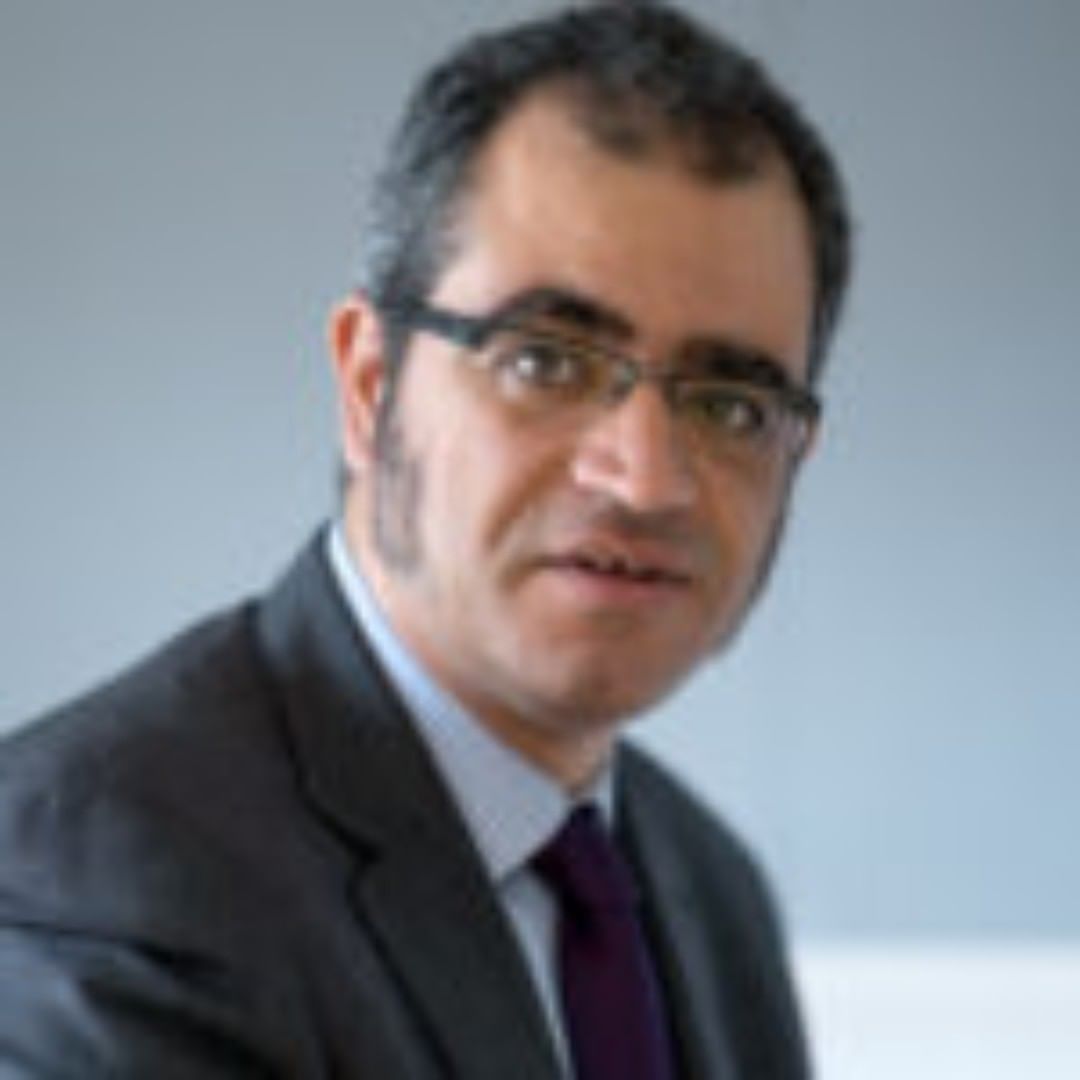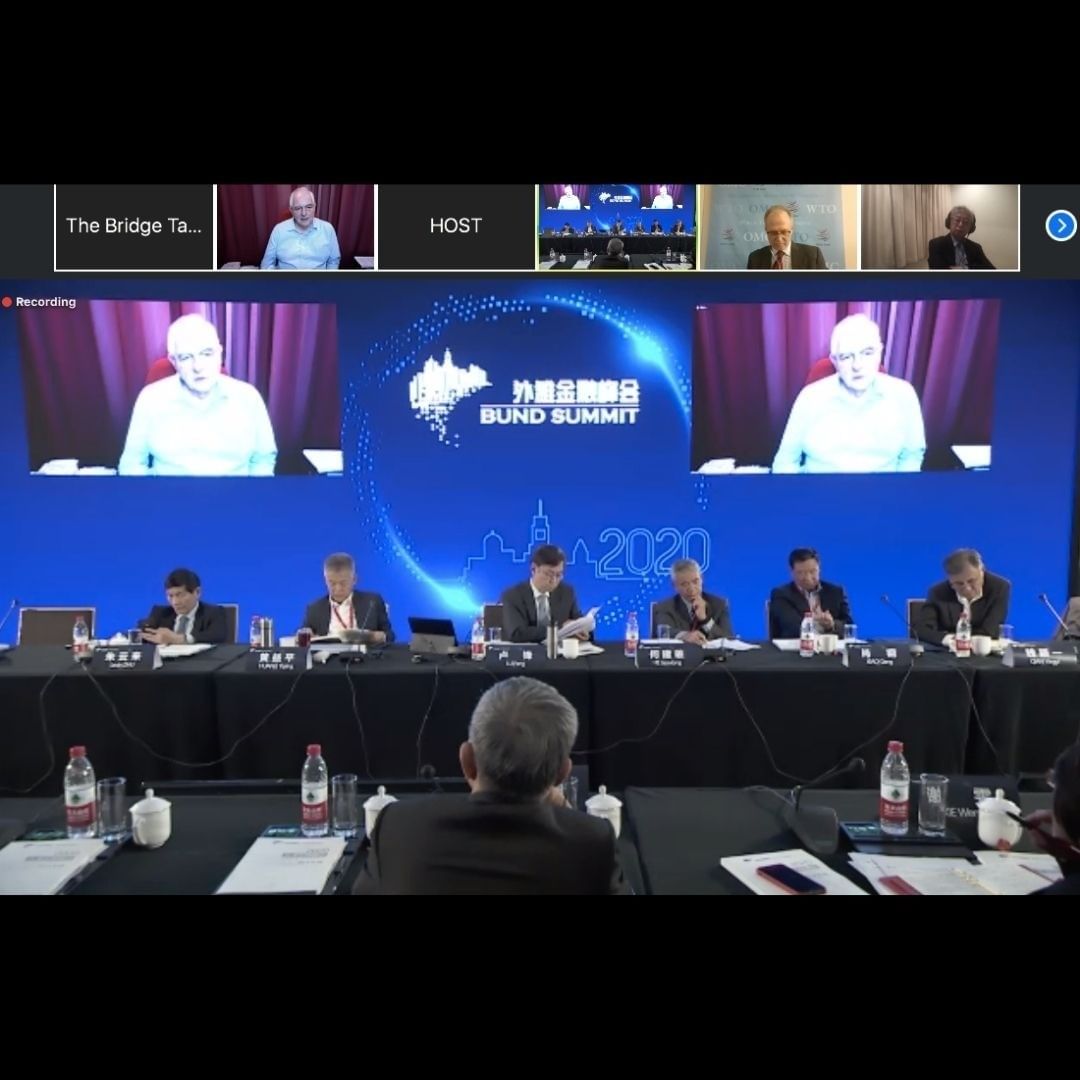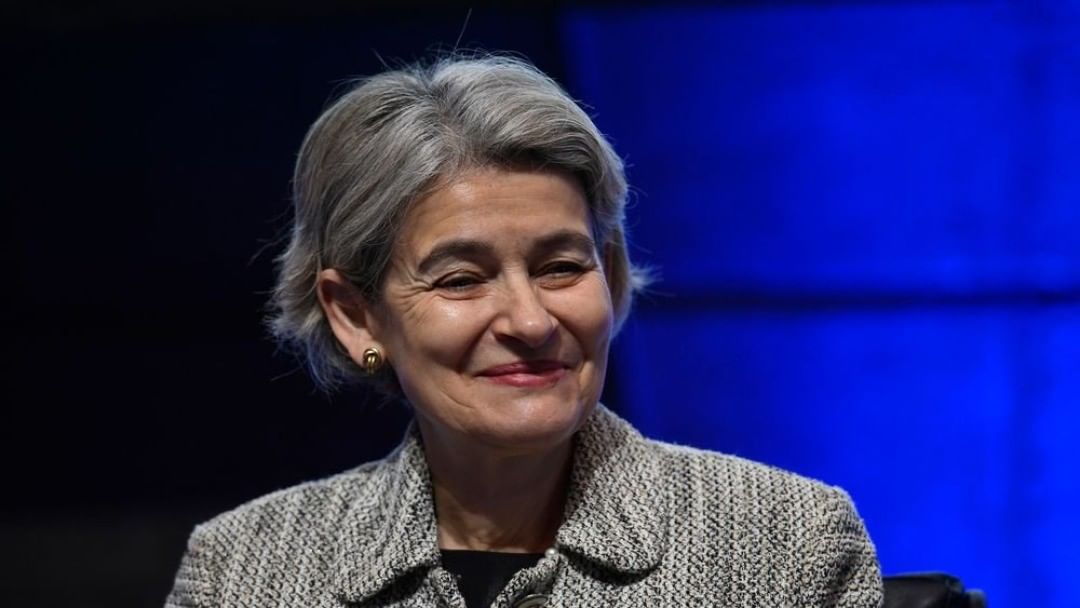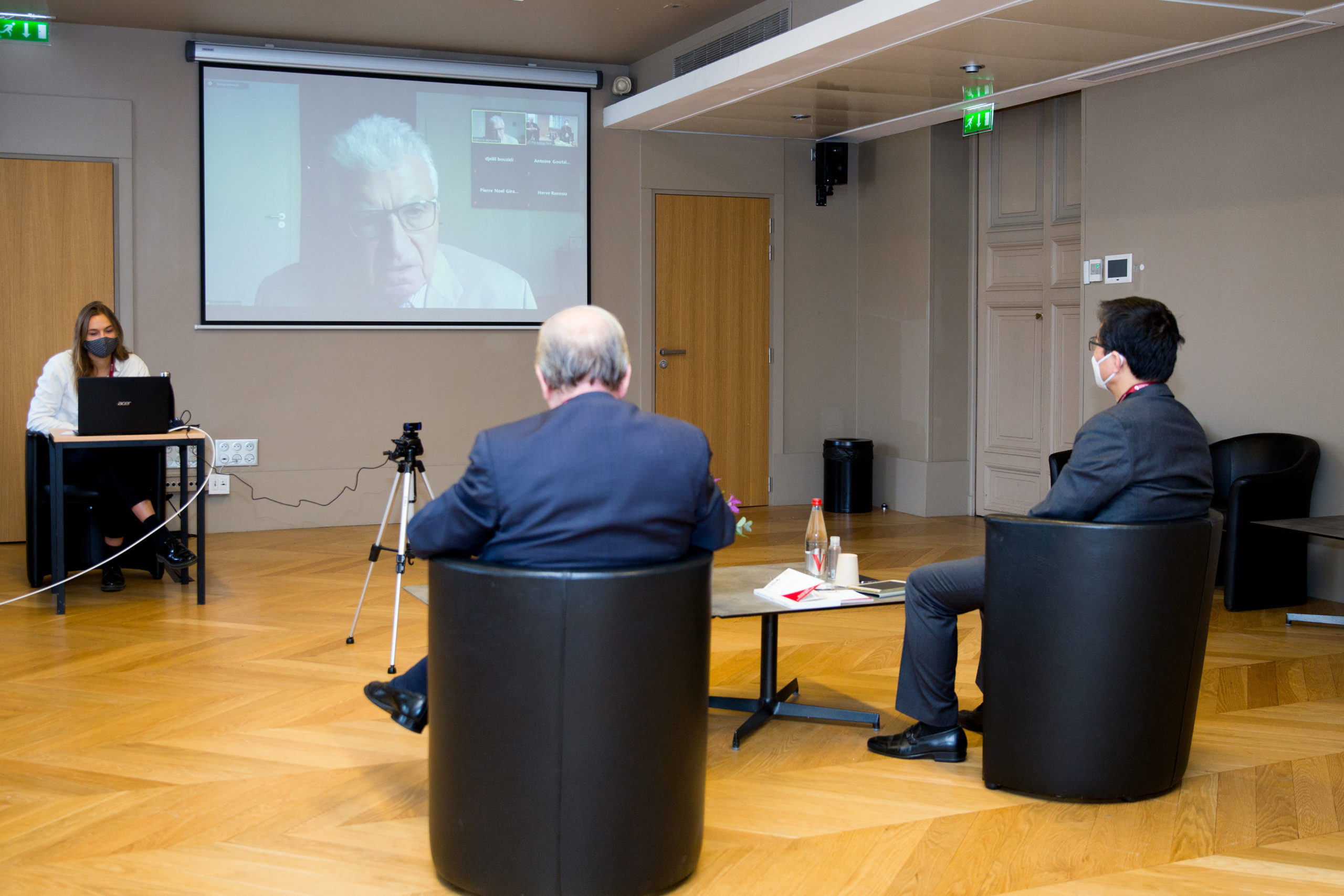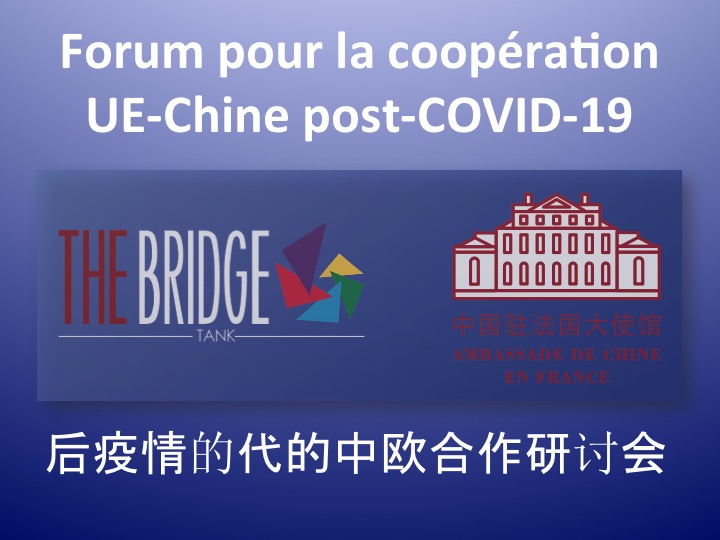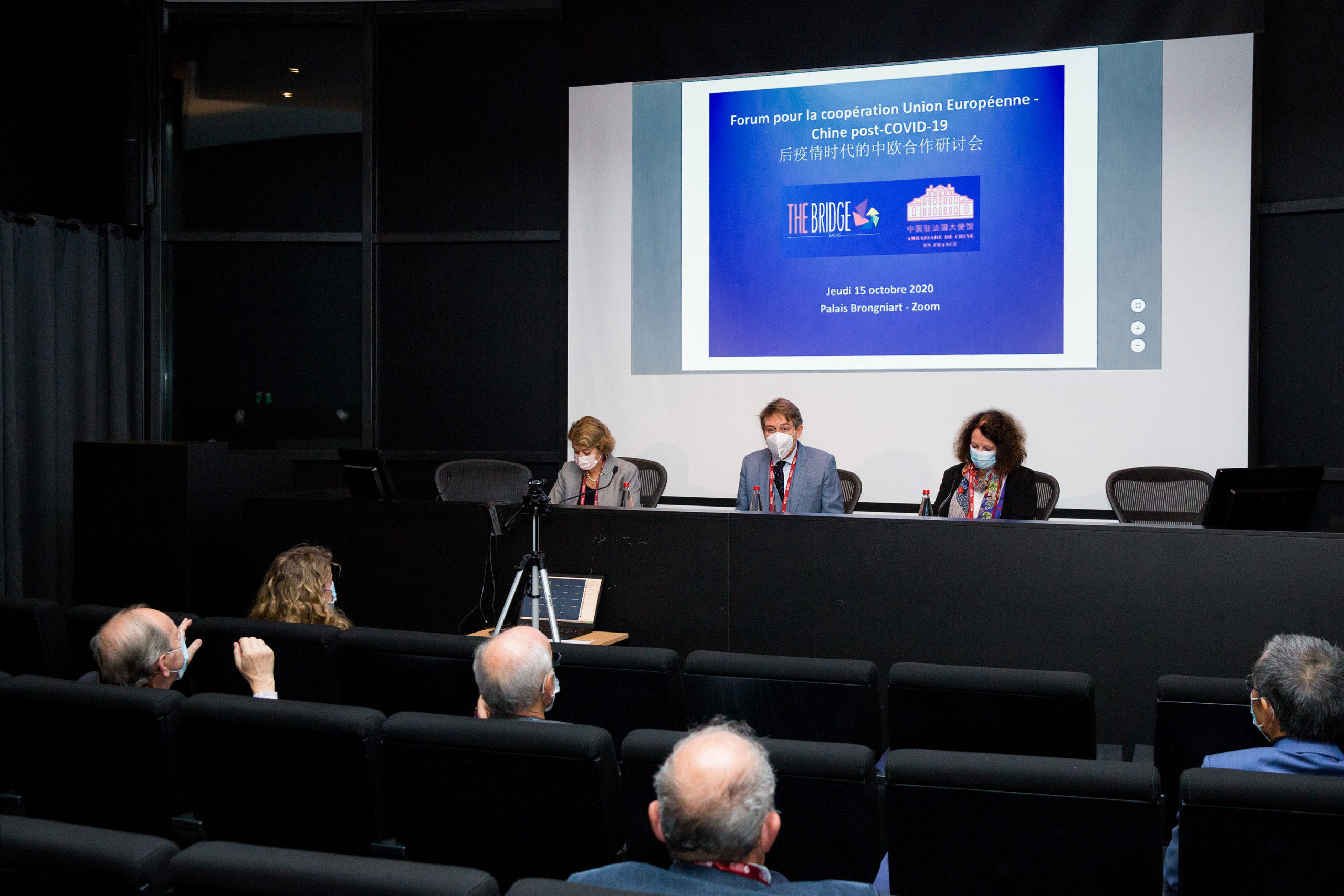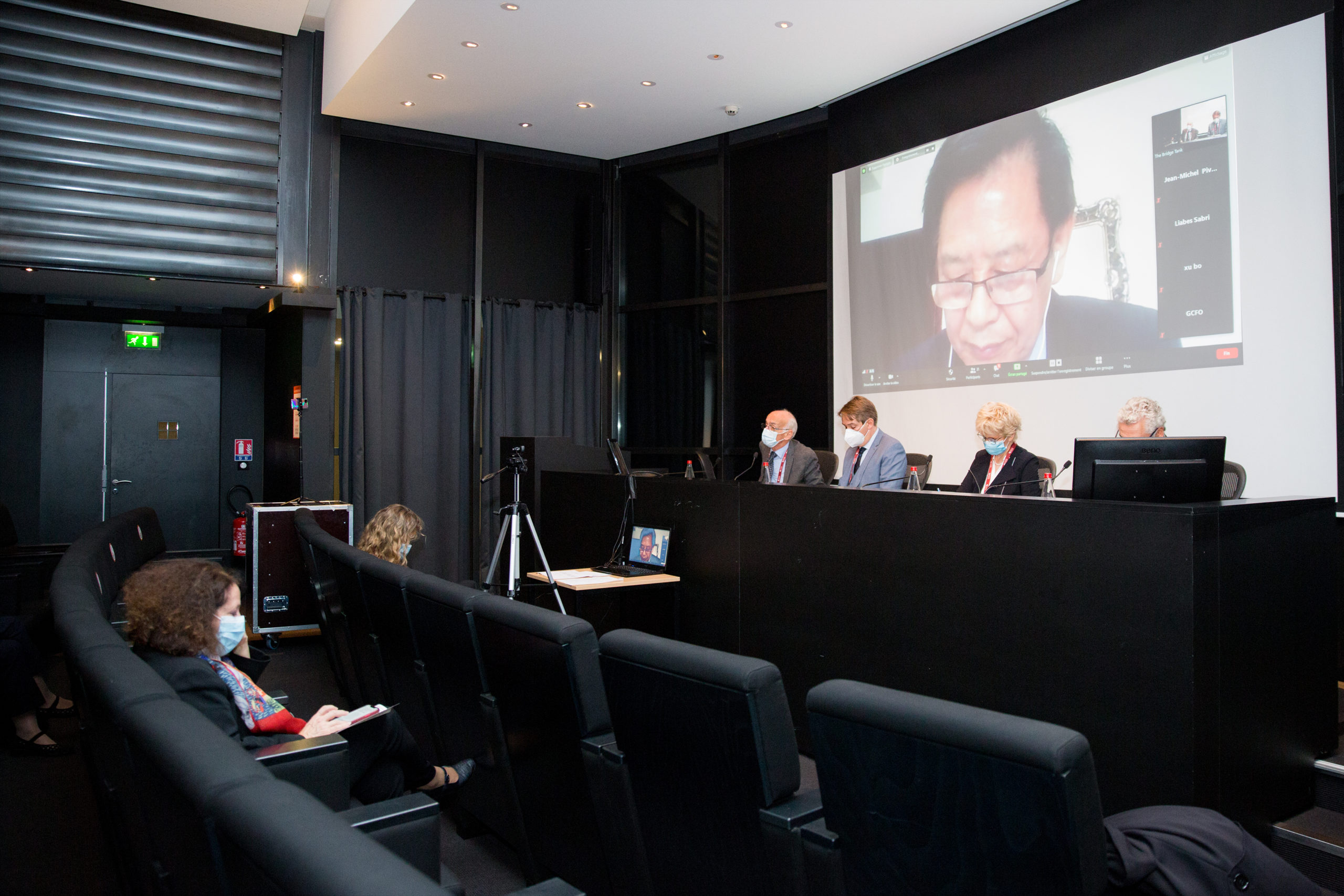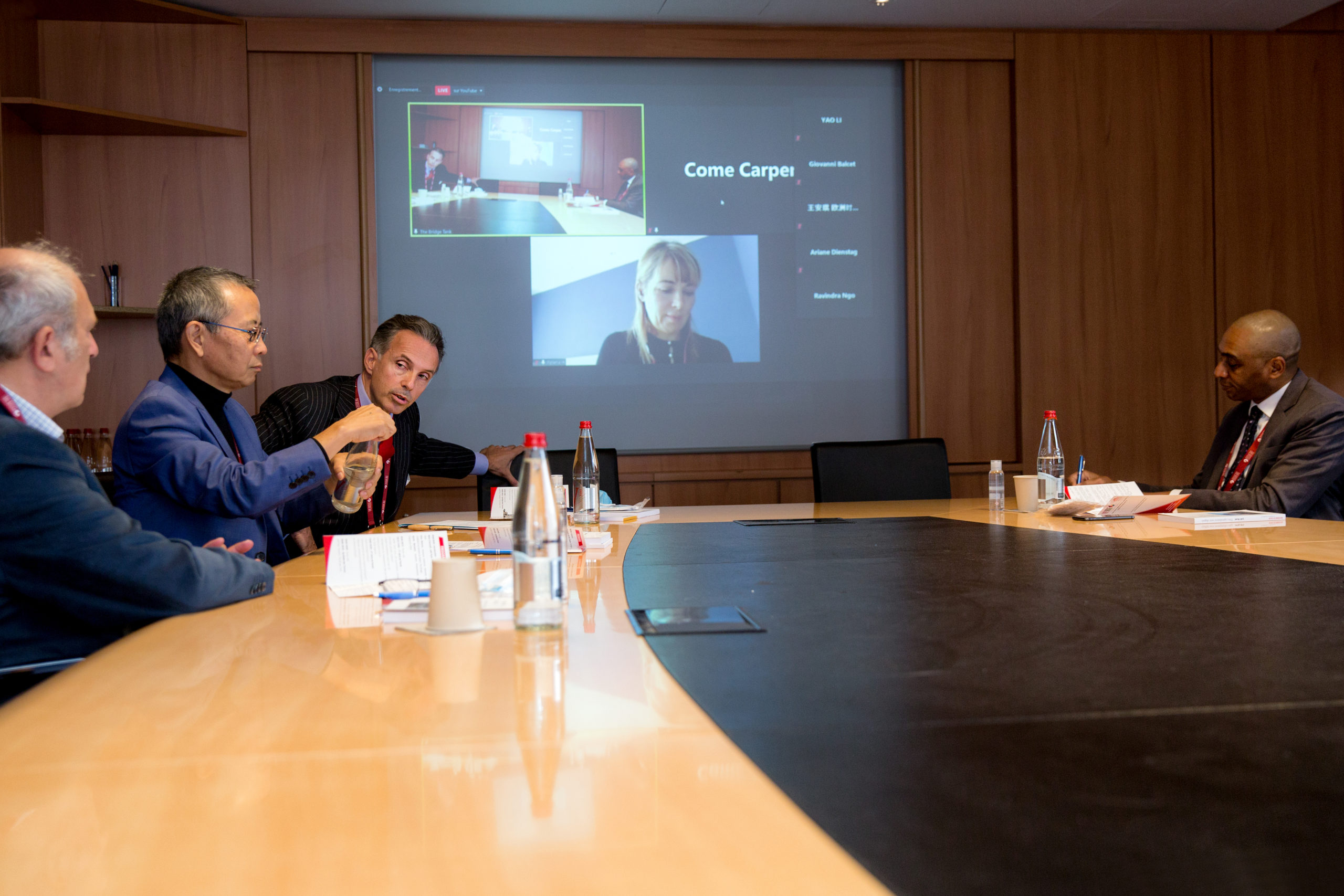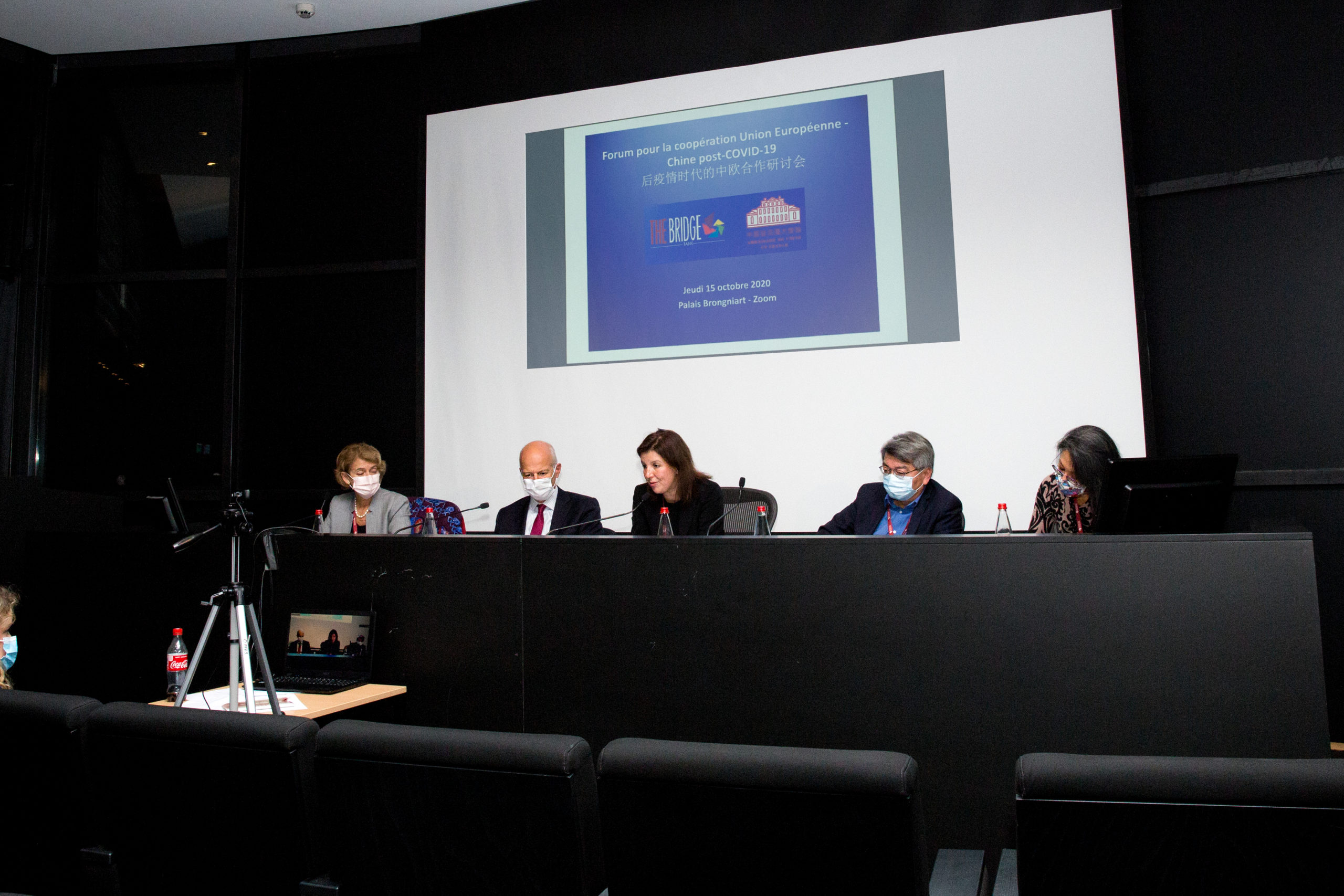Djellil Bouzidi published an article for the Official Forum of Monetary and Financial Institutions
Djellil Bouzidi, member of the Bridge Tank’s board, wrote with Michael Mainelli an article for the Official Monetary and Financial Institutions Forum entitled “How climate cuffs could save the planet” on the 26th of October 2020.
He recommended sustainability-linked bonds as efficient instruments against climate change, as they are dedicated to “green projects”. Policy performance bonds have also become increasingly popular, as they prioritise targeted outcomes. Djellil Bouzidi also recommended these bonds, as “any policy with clear goals can set an interest rate, percentage of renewable energy generation, carbon prices, forestation, or educational attainment levels”. These instruments have also been accepted by the
European Central Bank. This opens the way for governments to issue policy performance bonds with interest payments linked to the issuing country’s greenhouse gas emissions. The sale of such bonds linked to carbon targets would lead to a convergence of the global carbon price, locally handled clean-up costs and a much smaller need for carbon tariffs.
Participation of the Bridge Tank in the Bund Summit 2020
Charlene Barshefsky, former United States Trade Representative, Lu Feng, Professor at the National School of Development of Peking University, Timothy Geithner, 75th Secretary of the Treasury of the United States, He Jianxiong, former Executive Director for China at the International Monetary Fund, Motoshige Itoh, Professor of International Social Sciences at Gakushuin University, Martin Wolf, Associate Editor and Chief Economics Commentator at the Financial Times, Robert Koopman, Chief Economist at the World Trade Organisation, and Jeff Schott, Senior Fellow at the Peterson Institute for International Economics, were among the keynote speakers of the Bund Summit Seminars. This event was divided into two seminars: “China-US relations and global response: trade and technology”, which was chaired by Lu Feng, and “Global asset allocation under the new normal”, which was moderated by Wang Haiming, Secretary-General of the Bund Summit Organising Committee and of the China Finance 40 Forum. The second seminar was divided into two panels, the first one dedicated to “Asset allocation and investment strategies under the new normal after the COVID-19 pandemic” and the second to “Further reform of the capital market and new opportunities for equity investment”.
The Bridge Tank was invited to attend this event, which took place on the 24th and the 25th of October 2020. Over 30 development and finance experts were gathered to intervene in these seminars.
Irina Bokova talks on « Culture grappling with global phenomena »
Irina Bokova, member of the Bridge Tank’s board, took part in a discussion with Clémence Varin, Fellow of the Open Diplomacy Institute. This discussion was on “Culture struggling with global phenomena” and took place on the 23rd of October 2020.
Irina Bokova argued that culture was facing many challenges linked to global warming, which should be clearly considered as a threat to culture and therefore urgently has to be described as such in international conventions. UNESCO can therefore act to preserve the environment, as its mandates
refers to culture, but also science and education, key elements of the fight against climate change. Access to digital technology must be carefully considered, as it represents many new challenges and inequalities; it has to be an asset for culture, whilst still respecting ethical standards. To act efficiently and defend multilateralism, a stronger cooperation must be established between the United Nations, NGOs, the academic world and the private sector, especially young generations.
The Bridge Tank organises a panel on greening investment in the EU and China & challenges of the Belt & Road Initiative
The news on sustainable development is dominated by the initiative announced at the 75th anniversary of the UN by Xi Jinping to be carbon neutral by 2060. The AIIB has decided to stop financing coal. The Chinese government aims to pass the carbon emission peak before 2030 but 80% of primary energy in China is carbon-based, representing 27% of global GHG emissions. In light of these recent developments, Edmond Alphandéry, Pierre-Noël Giraud, Song Luzheng and Djellil Bouzidi discussed the economic instruments of a possible EU-China cooperation in this field in a panel chaired by our board member Philippe Coste.
Philippe Coste recalled that for the time being, many coal-fired power plant projects are being built in China. However, the combination of China’s desire to pass the carbon emission peak before 2030 and the launch by Europe of its green plan in connection with the recovery plan provides a very good basis for cooperation, provided that the ways of effectively exploiting it are identified.
Edmond Alphandéry pushed for a carbon price tool. In Europe, a coalition of finance ministers has been set up in this direction: it is a market-based, decentralised solution that encourages the production of non-carbon energies. In Europe, 45% of emissions are subject to the ETS market. This mechanism retains the problem of volatility. To maintain its power as a price signal, the price of emission allowances must be predictable and stable over the long term, and Edmond Alphandery has set up a task force to convince the European authorities to target carbon prices rather than emission volumes.
China is absolutely key in the fight against climate change. It has realised this and set up a carbon market. Within the International Finance Forum, we are leading a joint initiative between leading Chinese and European figures towards a common strategy for a convergent carbon price. The idea is spreading in China.
Pierre-Noël Giraud also insists on the role of politics and civil society, arguing that banks have no interest in getting involved because of the liquidity of financial markets. The failure of green bonds is also obvious as they only yield 8 basis points.
Djellil Bouzidi fully shares this view on green bonds. Zero and negative rates are the enemy. The investment costs do not vary and the energy intensity of companies issuing green bonds is generally worse afterwards. The state is very important, the fight against GHG emissions is a state affair! Government bonds indexed to environmental performance (GHG emissions, deforestation, composite indices) would force governments to meet their commitments, creating a new asset class: sustainability-linked bonds. Private accounting is another lever for private companies at two levels.
The debate mentioned the role of Africa: Tomorrow the major emitters will be South Asia and Africa. By 2050, China will be back to 1 billion inhabitants as will the West. Africa will have 2.4 billion inhabitants and South Asia 2.5 billion. In South Asia, and even less so in Africa, there will not be strong enough states to drive investment. A tripartite partnership in Africa must be set up to make up for the shortcomings of the states. The Chinese and the West could come to an agreement. Africa must become a laboratory for green energy! Investments in Africa should be entirely decarbonised even if, in practice, this adds difficulties. China, in the framework of BIS, could put a price on carbon in its overseas investments, encouraging its partners to do the same. The financial partners – the banks – have clients who have already pushed them out of inaction. For the proposed instruments: the market structure of finance neutralises the power of these instruments.
Download the minutes of the debate in french: Greening Investment Session
EU-China Post-Covid-19 Cooperation Forum sessions – 后疫情时代的中欧合作研讨会
The first part of our Forum, co-organised by The Bridge Tank and the Chinese Embassy, brought together 4 former ministers, 5 former ambassadors and a total of 30 experts on 15 October at the Palais Brongniart in Paris, as well as 150 registrants from 3 continents and more than 15 cities, for informed and precise exchanges on economic, industrial, social and cultural issues concerning the EU-China relationship.
Download the programme (in French) here
It was opened by Joël Ruet, Irina Bokova, board member of The Bridge Tank who clarified the expectations for the 6 panels of the Hybrid Forum, and by Ambassador Sylvie Bermann who gave her views and suggestions on the issues to be discussed between the EU and China.
These exchanges will be followed by free contributions via an open online Forum, whose recommendations will provide the material for a “white paper” which will be presented by The Bridge Tank at a restitution conference in the presence of the Chinese Ambassador to France and French and European public figures.
Our work dealt with diplomatic issues, culture, human exchanges, economics and industry, focusing on common challenges between the European Union and China: energy transitions, economic transitions – in particular the advent of new industrial models, global public goods. About 80% of the experts were French or European and 20% Chinese, all independent practitioners.
This forum takes place at an important moment when the European Union and China have started negotiations towards an investment agreement.
The reports of the sessions are available below, after the photo gallery.
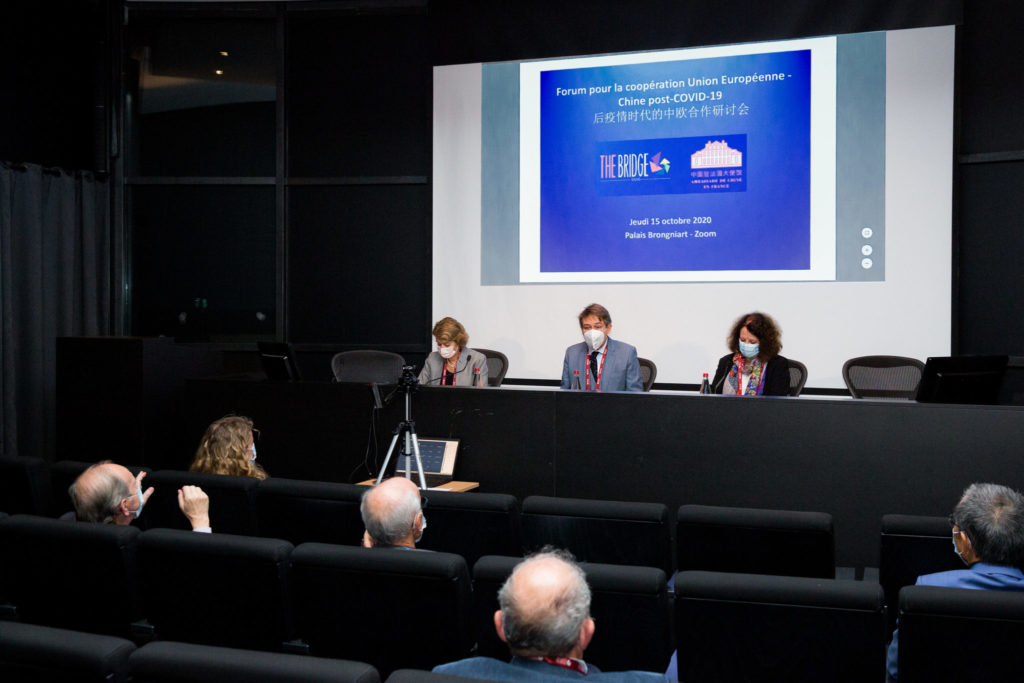
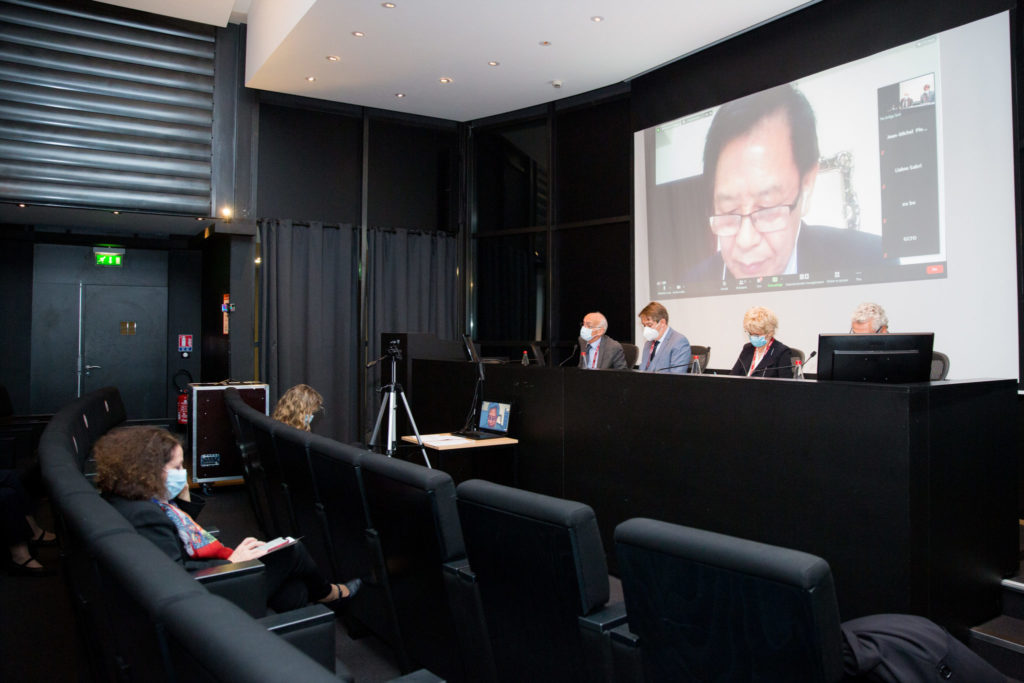
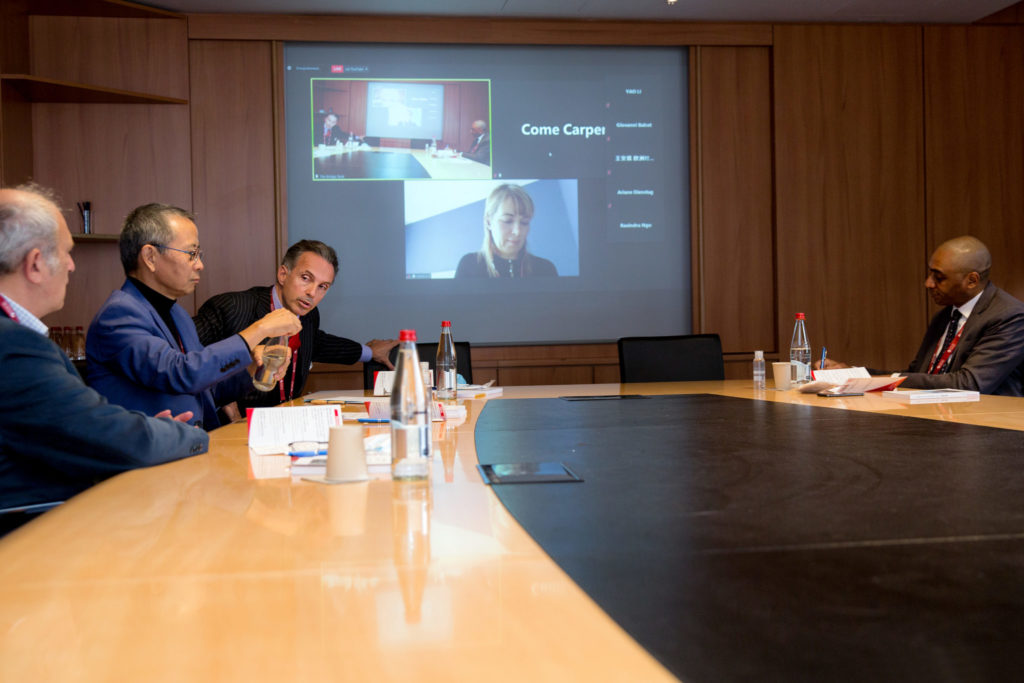
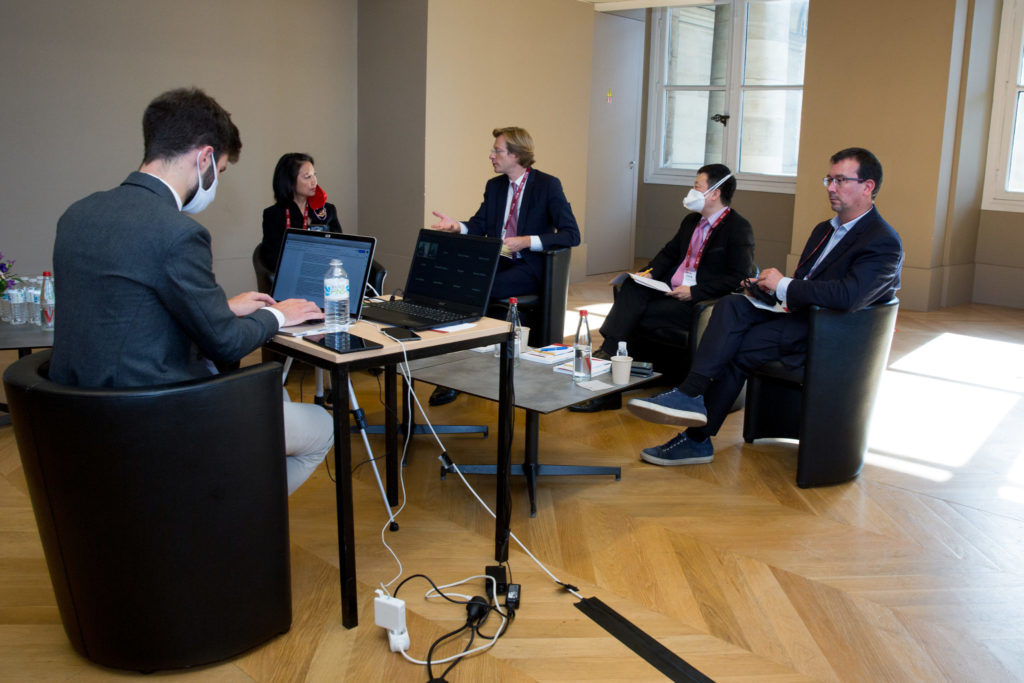
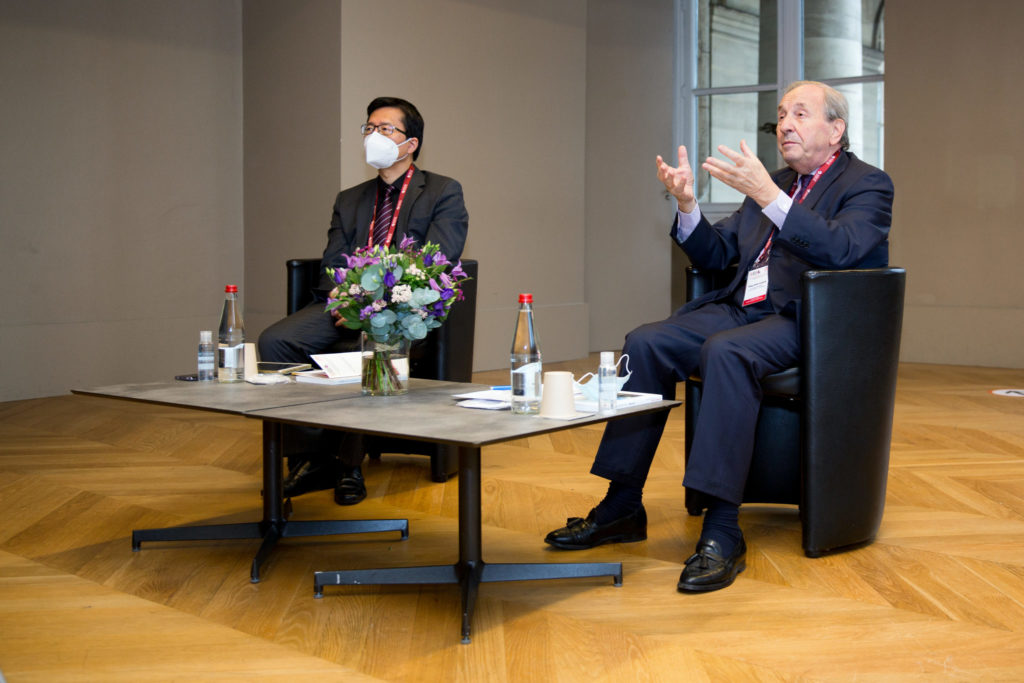



EU-China Post-Covid-19 Cooperation Forum – Introductory Session
Forum co-organised by The Bridge Tank and the Chinese Embassy in France
The introductory exchanges between Irina Bokova and Sylvie Bermann, former French Ambassador to China, reminded us of the importance of anchoring economic and environmental cooperation in the Sustainable Development Goals, which include the human dimension, and of starting from the concrete in order to arrive at renewed concreteness and make proposals in this direction. The concept of Europe as a “balancing power” proposed by Sylvie Bermann is a common thread in our work.
Balanced power also refers to vision and strategic projection and this concept will be questioned very quickly with the American election, depending on who wins. Combining power and balance is a rather Chinese concept, quite dialectic, will it allow us to avoid falling into the trap of Thucydides? The agenda is moving forward, evolving, and this forum intends to make a modest contribution to the debate.
Irina Bokova, as a board member of The Bridge Tank and former Director-General of UNESCO, wants to give a more ‘UN’ dimension to the debates, to reflect on multilateralism, globalism and the climate. It is a question of rebuilding a fairer, more inclusive and more multilateral world after the crisis of covid. China and the European Union are very important actors in these debates on multilateralism and the United Nations in general. There is currently a refocusing going on in these areas. The European Union’s ambition in this refocusing process is to position itself and find its place in a fully changing world. Seen from the rest of the world, the role of these two powers and their dialogue is extremely important.
The pandemic has shown the interdependence of the world today and the need for cooperation for a more human globalisation, closer to the people – this is also the expectation of European citizens. We must deepen cooperation and continue to reflect on the place of Europe and China, rather than entering into a new geopolitics. It is important to take into account the human and cultural side, not just investments, which allows for rapprochement in the economic, political and security fields.
Sylvie Bermann agreed that it was important to have places where people could express themselves freely and make concrete proposals. This requires an anchoring beyond inter-state relations, which have become a bit frozen and tense with the health crisis. The covid crisis is more a revelation and accelerator of underlying trends than a real renewal. We need to rebuild, but not from scratch: there are geopolitical balances that must be taken into account. The major world powers (US, EU, China) are very different. France is always at the forefront in this area, and President Macron had already formulated elements concerning the autonomy of the EU in his Sorbonne speech. This strategic autonomy is interpreted in different ways. There is European defence and security (not depending on NATO and the US, which tend to turn towards the Pacific and China), but also the question of economic and financial autonomy, hence Europe’s opposition to extraterritorial sanctions: it is not acceptable for another country to dictate what the EU can do or with whom it trades.
Ms Bermann also spoke about the euro, investment, climate, health, education and science.
Joël Ruet closed the introductory session and opened the work of the panels by recalling that the relations between the EU and China also concern the blocks and countries that want to count and have the means to do so (Latin America, Africa for some time now with the 2063 agenda, which outlines the paths of emergence planned for a 40-year horizon).
Download the summary of the debates (in French) here
Download the verbatim report (in French) here
What vision for an innovative, plural and inclusive global governance?
Ambassadors Stéphane Gompertz, Geneviève des Rivières, Sun Haichao, as well as IPSE President Emmanuel Dupuy, discussed with Joël Ruet the role of China and the EU on several global public goods and areas of global governance to work on together, including security and climate, covering also the comparative foreign economic action of these entities in Latin America and Africa, exploring ways and means of cooperation in third countries, notably in Africa.
Some recommendations emerged:
China could play a greater role in the field of political relations, to deal with internal and external conflicts as in the Central African Republic.
At present, China is an observer in the Paris Club: if it were to join, what would be the benefit in terms of common public goods?
China and the EU could cooperate on inclusive governance for the South by supporting the diversification of countries’ economies; the implementation of strategies to transform and diversify exports, adding value, promoting regional trade, entrepreneurship and support for SMEs, and reducing the informal economy.
On several subjects, it seems possible to create partnerships between the EU and China: in the field of international relations, demilitarisation, denuclearisation or on common goods such as biodiversity.
Finally, proposals for the governance of multilateralism were put forward:
China has long adopted a bilateral approach, dealing with international relations on a country-by-country basis rather than via a global approach. It now seems necessary to bring together multilateral working groups, including economic organisations, to deal with these issues and to identify the possibilities for joint work in a well-understood multilateralism, which must also involve poly-governance. Indeed, States cannot be the only decision-makers and thinkers: the various non-state actors have a role to play
Download the summary of the debates (in French) here
Download the verbatim report (in French) here
What globalisation after Covid-19?
To outline a new vision for Europe and, consequently, the challenges of its relationship with China, François Loos, former French Minister of Industry and Foreign Trade, Fatima Hadj, Member of the Bill and Melinda Gates Foundation’s Sustainable Development Goals “Goalkeeper” Community, Alex Wang, Honorary President of the Association Transition Ecologique et Solidaire Française et Chinoise (TESFEC) and Henri de Grossouvre Honorary President of Paris Berlin Moscow met under the leadership of Jean-Claude Beaujour, member of the Board of the Bridge Tank and Vice President of France-Amériques.
Jean-Claude Beaujour noted that the EU has an opportunity to rebalance its global relations, but asks if its governments are ready. Relocation meets a complex reality: what is the business vision of Euro-chinese relations and suggests that it is time to explain to citizens that those on the ground think differently and what the real options are.
François Loos insisted on the necessary restructuring of Europe-China relations, which are too much hampered by bilateral and non-EU relations. Europe must assert itself as a community, and review the mode of governance (going beyond majority voting). For example, photovoltaic production in Europe is compromised by Chinese imports. European producer countries should be favoured. China will have to put in place concrete incentives to enforce the laws in force. Its government has passed a law forbidding unequal treatment of Chinese and foreign companies. But this law is very slow to take hold and to be effective.
Henri de Grossouvre notes that the liberal era (1980-2020) is over. Thus the dogma of non-intervention by the state is being challenged in the EU itself. Example: Massive intervention by the US government. Europe must structure its governance.
Alex Wang believes that Europe-China relations will not stop because of Covid and that two subjects are emerging:
The necessity of rethinking the supply chain to make it more resilient and finding local production solutions.
Rethinking exchanges and collaborations in the field of corporate social responsibility.
Fatima Hadj sees the Covid crisis as exceptional because it impacts all socio-economic areas (unlike 2008 which was purely financial). It raises awareness of the need for economic sovereignty, which must be based on two pillars: management of economic dependence/independence; and finding areas of strategic cooperation, for example the electrification of uses.
Download the summary of the discussion (in French) here
Download the verbatim report (in French) here
What post-Covid human exchanges?
The issue of human exchanges, whether cultural, educational or scientific, is crucial to envisage the future, especially during this health crisis. Irina Bokova, Hervé Barbaret, Amel Kefif, Wu Peirong and Deborah Furet discussed these issues.
For Irina Bokova, this is an important topic in the debate on the refocusing of relations between Europe and China, especially as China has invested heavily in heritage, culture and identity.
For Hervé Barbaret, new solidarities, new curiosities and new networks must be created.
New solidarities: access to works of art and the sensory experience is unsurpassable. To counter the forms of communitarianism that claim to exclude a large part of humanity from works not produced by their own culture, we must develop a generous universalist approach that does not hierarchize, that allows us to cross our views, to take advantage of the richness of the convergences and divergences in the formal approaches.
New curiosities: the great challenge is that of attractiveness, of taking note of the richness of the cultural offer in the vicinity and of awakening curiosity for this offer.
New networks: the cultural offer is too often in silos, there is a need for a reconciliation of knowledge. Post-covid human exchanges require a decompartmentalized approach which may or may not be based on technological tools.
Amel Kefif underlined the entrepreneurial point of view in relation to the national cooperation committees, which raise for example the question of investments made by the diasporas. The African diaspora develops networks to create cultural projects between Europe and Africa, as well as socio-professional synergies and entrepreneurship support. These projects contribute to the fight against cultural and gender stereotypes. These good practices in cultural exchanges between France and Africa could be duplicated between China and Europe and vice versa. This raises questions about the obstacles and recommendations for directing productive investment between these two powers, and what the debates are for entrepreneurship.
Wu Peirong recalled that technological advances have contributed to progress but social networks create a cultural bubble that contributes to locking people into their subjects, which could reinforce political polarisation as observed in the USA. Technologies are therefore double-edged because they can create cultural walls.
Deborah Furet places these issues in the Chinese philosophical tradition in which the transformation of society does not come through politics, but through the individual, which is not the same as in European culture. In China, the individual is inseparable from others and from nature. This tradition can help to think about societal transformations.
Download the summary of the discussion (in French) here
Download the verbatim report (in French) here

